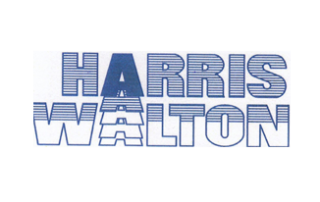Do you have a project we can help you with?
We help our clients achieve their objectives and dreams; whether it’s a small scale project such as an extension or a large scale development.
Every project has a beginning and an end; its how you get there that determines the success of it. We’re usually appointed at the very start of a project, when the client has an idea, through to completion. However, this isn’t always the case. Either way, we’re here to help you along the way. We’re regularly asked “what does the design process involve?” or “can you project manage it?”
There are several stages along the path of a project. These revolve around formalising the client’s idea, undertaking studies to determine the feasibility of the project, preparing and then developing schemes before detailing an approved scheme for construction and beyond. We follow the RIBA’s Plan of Work 2013 which categorises the stages as follows:
Stage 1: Preparation & Brief
Stage 2: Concept Design
Stage 3: Developed Design
Stage 4: Technical Design
Stage 5: Construction
Stage 6: Handover & Close Out
Stage 7: In Use
A brief description of the usual activities we can offer you are:
Stage 1
- Develop your objectives and prepare your brief. This describes your project or ideas and can also include your requirements for budget, time, quality standards, etc.
- Prepare a programme illustrating project events and anticipated timescales.
Stage 2
- Undertake measured and topographical surveys of the site/building, or arrange these on your behalf, depending on the project.
- Carry out feasibility studies and appraisals of several options we’ll prepare.
- Provide advice on timescales, programmes, costs and procurement routes.
- Advise on the appointment of other professionals and specialist consultants to complete the design team, if required.
- Prepare a concept design based on a preferred option and submit for pre-application advice, if appropriate.
Stage 3
- Develop the concept design, along with the input of any other consultants, to comply with the various legislative requirements.
- Prepare and submit relevant applications, including planning, listed building consent, and liaise with the authority to receive a decision.
Stage 4
- Liaise with other appointed consultants or specialists, as required, to prepare a full set of construction drawings, specification and schedules for your project.
- Prepare and submit applications for statutory approvals, including building regulations.
- Prepare tender documents, including contract conditions, before inviting tenders on your behalf.
- Receive and review returned tenders, prior to providing a report.
- Prepare contract documentation ahead of commencement of works.
Stage 5
- Administrate the contract – including periodic site visits to inspect the works and respond to issues which may arise.
- Monitor the progress of construction and provide feedback to you.
- Undertake site valuations or liaise with your appointed consultants and issue payment certificates for your reference.
Stage 6
- Liaise with contractors during the approach to completion and schedule any defects for rectification before arranging handover to you – ensuring a smooth transition, with minimal stress.
- Assist in determining the final construction costs and preparean account for agreement.
- Inspect the works to schedule any latent defects for the contractor to remedy, as necessary.
- Issue the Final Certificate, effectively closing the project.
Stage 7
- These activities are undertaken when the building is being used and are specific to the project. Subsequently, we review these with each client accordingly.
There are additional activities we can undertake, which are specifically referenced as “other services” in our forms of appointment. These are often agreed with our clients before appointment, however they can be added in as the project progresses and may include:
- Undertaking negotiations with a preferred contractor instead of, or after, tendering.
- Revisions to approved documents.
- Review/assessment of designs prepared by others.
- Interior design, including preparing colour boards and obtaining samples.
- Liaising with public utility companies.
- Design of purpose made furniture and fittings.
- Acting as Lead Consultant of the design team.
- Acting as Principal Designer, as referenced in the CDM Regulations 2015.
Planning Applications
Planning applications are submitted at the appropriate stage and may follow a pre-application, depending on the nature of the project. While we make every effort to ensure our applications are fully detailed, to maximise the likelihood of obtaining an approval, it is worth noting that planning authorities can be changeable during their considerations.
We often liaise with the Local Authorityduring the application process to assist the planning department and hopefully provide an easier route for them granting permission. This sometimes includes minor modifications.
It should be noted that our fees for services undertaken upto the submission are due at the time of submission. Our fees are not dependent on the granting of planning permission. Design variations required by Clients or planning departments to secure approvals are separate and will incur additional fees.
We are often asked “How much does it cost for plans to be drawn?” Our response is to point out that every architectural project is unique and particular to that client, site location and budget. Consequently, our fees vary from project to project. There are three ways we can calculate our fees, depending on the project stage and the services being provided. These are agreed and set out in our forms of appointment, before commencing our activities. They are time based, lump sum or a percentage based on the construction contract value (the building costs).
Time Based Fees
This is our standard method of charging fees during the early stages of any project, generally up to receipt of a planning decision. Fees are calculated according to the time expended on the project by the various staff involved. Our hourly rates vary depending on the complexity of the project, activity undertaken and the experience of the staff member involved.
The early stages of a project are usually when the most variations are made, as clients change their minds and require more options or amendments to the drawings. These can’t accurately be estimated at the outset, so we’ve found that a time charge basis is the fairest method of charging our fees.
Time charges are also used when variations to the scope of our activities are made within a project, when another fee basis is used, e.g. lump sum.
Lump Sum Fee
This is the most popular method with clients of smaller projects, during the later stages, following receipt of a planning approval,as it allows them to understand the total cost from that stage onwards.
We agree with our client the scope of activities they require from us and based on our experience calculate the time expected to complete those activities. This forms the basis of our lump sum fee proposal. However, we can deviate from that scope, if required by the client, and any additional activities are calculated on a time charge basis.
Percentage of the Building Cost
The alternative method, usually applied on larger projects, is to charge our fees as a percentage of the contract value. Different rates apply to differing types of work and contract values.
A relatively small scale project will generate a higher percentage fee than a much larger scale project. Similarly, refurbishment work generates a higher percentage than new build, as there tend to be more uncertainties in the work.
Expenses and Disbursements
We occasionally incur expenses and disbursements on behalf of our clients, which are re-charged to them within our fee accounts. These differ for each and every project and are regularly agreed with clients before committing to them.
Generally, they include travel and car parking, printing, postage and purchase of Ordnance Survey plans. Fees charged by local authorities for applications, such as planning and building regulations, are usually paid directly by the client. However, where we agree to pay, these incur an additional administration fee.
Terms and Conditions
Before commencing on any project, we endeavour to agree a fee basis, along with the terms and conditions of our appointment. As previously stated, every project is individual and therefore those terms and conditions can vary depending on the nature and scope of the project and services to be provided. A brief summary of our usual terms and conditions can be found in the useful links at the bottom of this page.





